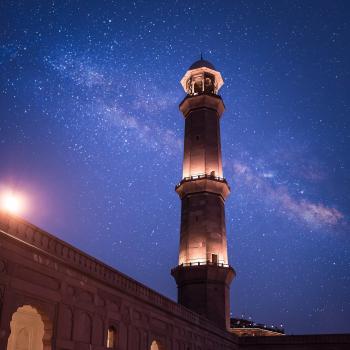Oftentimes, we behave like that child in our relationship with Allah, especially when it comes to making du’a. We see the piece of the puzzle that we like, the thing that we’re making du’a for, and assume that it must fit into our lives right now, without keeping in mind that Allah sees the whole picture. We assume that we know what’s going on, when all we see is a fragment of our life.
In Musa (as)’s journey while seeking knowledge, he was admonished for making assumptions about the various situations that he witnessed. Every time he was outraged by and questioned what was going on based on the little he knew about it, he was proved wrong. He was taught patience through the realization that he didn’t always have full knowledge and wisdom about what he was witnessing, and that he needed to trust that his teacher was doing everything for a greater benefit (18:65-18:82).
We assume that we know what’s going on, when all we see is a fragment of our life.
Similarly, we make du’a without knowing how the situation will play out in the end, and become impatient because we think we know already. In this impatience, sometimes we stop thinking rationally and become desperate for whatever we’re making du’a for, so if Allah doesn’t grant that thing to us right away, or if He takes something away from us, we despair instead of trusting that He’s doing what’s best for us. Even if it doesn’t make sense at the time, as more pieces are added to the puzzle of our lives, things start to become clear, and we regain focus of what’s going on. He gives and withholds based on His unlimited Knowledge and Mercy, not based on our desperation for instant gratification. If we just stick through the hardships we’re going through, and the times when it seems that our prayers are going unanswered, we’ll realize that Allah put us through that test for a reason that’s greater than what we could have imagined at the time.
We should try to keep in mind that the moment we’re in will pass, and that it’s only one piece of the puzzle- that it will fit together in the end, despite how things may seem to us right now. The Prophet (saws) said, “(The du’a) of any one of you will be answered as long as he isn’t hasty in seeking a response and doesn’t say, ‘I prayed but I haven’t had a response'” [Bukhari]. In another hadith, he further explains being hasty (or trying to speed up the response to a du’a) as saying, “I prayed and I prayed, but I didn’t get a response,” and then becoming hopeless and giving up making du’a altogether [Bukhari].
When we rush the answers to our du’as, we’re forgetting that Allah’s Knowledge and Vision is incomparably greater than ours, and that He sees what we don’t. It’s like sitting in a car that someone else is driving, and not being able to see more than six feet ahead of you because you don’t have your contact lenses or glasses on, but still trying to backseat drive. The driver tells you to stop because they know what they’re doing and you can’t see clearly, but you insist, “I know what I’m doing!” while trying to get the driver to run you into a pole off the side of the road. We do this, and then don’t understand why Allah doesn’t seem to be responding to our du’as right away, even though what we’re asking for may not be good for us at all. Allah (swt) tells us, “You might hate something and it’s actually good for you, and you might love something even though it’s terrible for you. Allah knows, and you don’t know” (2:216). Let’s trust that He really does know what’s best for us, and keep making du’a rather than losing hope. Remember that ultimately, if something’s meant to be yours, Allah will give it to you sooner or later- guaranteed.
We should try to keep in mind that the moment we’re in will pass, and that it’s only one piece of the puzzle- that it will fit together in the end, despite how things may seem to us right now.
“Whenever my slaves ask you about Me, then there is no doubt that I am incredibly near. I respond to the caller whenever he calls [on Me]. Then they should respond to Me, and they should believe in Me, so that they may be guided.” (2:186)
May Allah (swt) make us of those who truly believe in Him and trust that His plans for us are better than our own; ameen.











